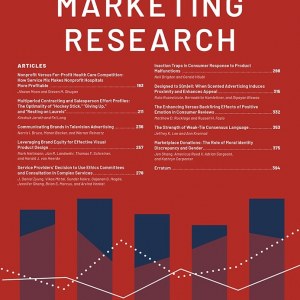
Babic, A., Sotgiu, F., \de Valck\, K. and Bijmolt, T. (2016). The Effect of Electronic Word of Mouth on Sales: A Meta-Analytic Review of Platform, Product, and Metric Factors Journal of Marketing Research, 53(3):297--318.
-
Affiliated author
-
Publication year2016
-
JournalJournal of Marketing Research
The increasing amount of electronic word of mouth (eWOM) has significantly affected the way consumers make purchase decisions. Empirical studies have established an effect of eWOM on sales but disagree on which online platforms, products, and eWOM metrics moderate this effect. The authors conduct a meta-analysis of 1,532 effect sizes across 96 studies covering 40 platforms and 26 product categories. On average, eWOM is positively correlated with sales (.091), but its effectiveness differs across platform, product, and metric factors. For example, the effectiveness of eWOM on social media platforms is stronger when eWOM receivers can assess their own similarity to eWOM senders, whereas these homophily details do not influence the effectiveness of eWOM for e-commerce platforms. In addition, whereas eWOM has a stronger effect on sales for tangible goods new to the market, the product life cycle does not moderate the eWOM effectiveness for services. With respect to the eWOM metrics, eWOM volume has a stronger impact on sales than eWOM valence. In addition, negative eWOM does not always jeopardize sales, but high variability does.